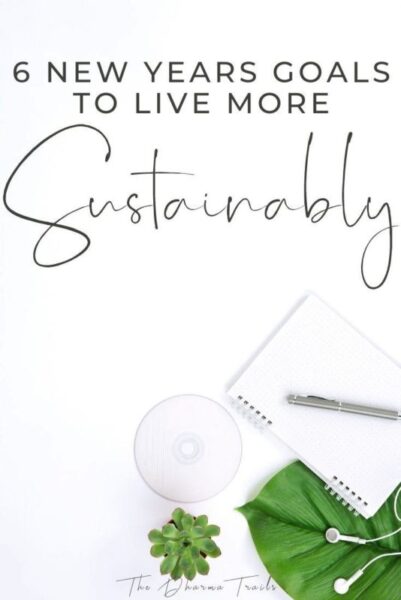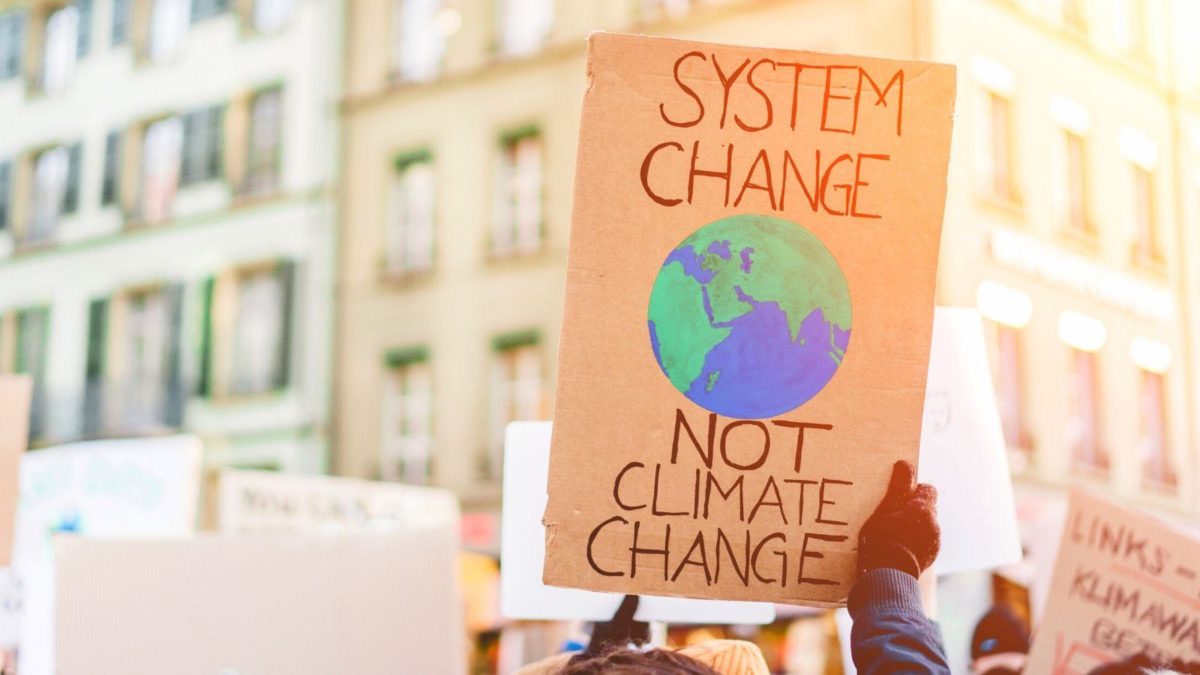There’s been a big, green push this year towards a more sustainable future. Why not make this upcoming year your most sustainable one yet? Here are some Green New Years Goals to get your life on an eco friendly track in 2024.
This post may contain affiliate links, which means I may earn a commission if you click a link and make a purchase. As an Amazon Associate, I earn from qualifying purchases.
There have been some amazing sustainable developments in technology and scientific research this year. We’ve developed these new years goals to incorporate as much of them as possible!
Cheers to a greener future!
Table of Contents
Why are New Years Goals Important?
Goal setting often gets a bad wrap as being something restrictive. In fact, it is the opposite (if done correctly). Setting big-scale goals is a great way of opening up your mind (and life) to a possibility of things you never thought possible.
In the world of sustainability, there are a lot of words and phrases that get used without defined meaning, like “Minimalism” or “Zero Waste”. In this post, we’ll cover different ways in which you can incorporate these into your lifestyle. All in all, we can take the following saying as being the best New Years Goal guide:
It’s better for all of us to be mostly sustainable, than a handful of us to be completely sustainable.
The Dharma Trails
Here are the top ways in which you can achieve a greener year.
1. Shop mindfully
What does shop mindfully mean?
It means take a few minutes to think about a purchase. That doesn’t mean stand and gaze at the shelf for minutes in a store while people walk around you, awkwardly. It means purposefully disconnect from shopping impulses.
The role of advertising is to make you think and feel things without being aware. Down to every detail (the colour and font selection of a brand), goods and services are developed to be SOLD. And in high volume.
A Quick, Mindful Shopping Checklist
There are a few things you can do before buying something new this year. Ask yourself:
- Do I need it?
- Where did it come from?
- Was it made with the world’s best intentions in mind?
- Will it be well used? Can it be reused over and over again?
- Is there a waste footprint from the item?
- Is there something I already have that I can repurpose?
- Can I buy this item second hand?
If you get through all of those questions, ask yourself again “do I really need it?”. In many cases, you will find yourself saying “no”.
Welcome to the world of “minimalism“. Where more is not always more. In fact, most times “less is more”. It sounds like a kind of Alice in Wonderland approach to shopping psychology. But cutting down on unnecessary spending really will have a positive impact on the environment (not to mention your bank balance).
2. Say No to Plastic (Reusables are In)
Some horrifying plastic statistics and images (like whales washing up on beaches full of plastic bags) have really driven home the fact that single use plastics are simply not going to be an option going forward.
This New Years goal is super important. Saying no to plastic on a mass scale around the world is critical to the survival of our planet. There’s no doubt that plastic has been (and in some cases, continues to be) a useful commodity. But our planet cannot handle the plastic volume.
The issue is that at the volumes we as people go through on a daily, weekly, and monthly basis, our garbage disposal systems simply cannot keep up. This is resulting in huge volumes of plastic entering our oceans each year. The plastic never really degrades, it just “breaks down” into tiny microplastics that are entering the food chain and making their way back into humans. The resulting health issues caused by this are still undetermined. But it can’t be good.
How to say no to plastic
There are lots of ways in which we can “say no to plastic” in our lives. This is one of the New Years goals you are definitely going to be able to surprise yourself with (as it is easier than you think).
Reusable items are one of the easiest ways
There are so many great eco friendly products that are reusable alternatives to single use plastics. There are:
- Plastic bag alternatives
- Zero Waste Shampoo
- Plastic Free Toothpaste
- Zero Waste products for travel
- Zero Waste Kitchen items
Having the right reusable gear is one sure way to dramatically cut down your plastic use this year.
3. Compost Your Organic Waste
Almost half of the household waste that ends up in landfills is organic (food). Food waste is a HUGE issue that does not get nearly the amount of attention it should.
With a finite amount of space on our planet to live, we have only an even smaller amount of space available for our waste.
Food waste does not breakdown in landfills
One of the biggest misconceptions with food waste is that “it’s natural so it will breakdown anywhere”.
- In one way that is true – if you drop an apple core on a lawn, it will eventually degrade away.
- If you place an apple core under a huge pile of trash with no exposure to air or light, it will not degrade.
Therefore, food that goes into your trash is taking up unnecessary space. Landfills should be for mass waste of items that cannot naturally breakdown or be reused (actual waste). Food scrap is not waste.
Compost at Home
Why compost?
Composting is the environment’s natural cycle that keeps the green world going. Plants grow, die, fall, decompose (compost) and new plants grow.
Food “waste” is by no means “waste” at all. It is a vital & nutrient-rich source of planet food. You can make your own compost at home using kitchen countertop compost bins. They even have charcoal filters on the top to prevent smell. If you avoid putting food scraps into your trash bin, then you don’t need a plastic bag for your trash either.
Compost at an Industrial Site or Community Garden
There are industrial composting sites where you can take your food scraps to get composted on a large scale. You can also connect with your closest community garden and take your food scraps there to be composted. If you don’t have a yard with a suitable composting space, ask a friend who does. They’d probably love to take your scraps.
4. Eat Less Meat
This might not be one of those New Years Goals you were hoping to hear. But it has to be said. The meat industry is having hugely negative impacts on our environment. Not to mention the (in many cases) unethical treatment of animals.
We all have a water footprint. This is the amount of water we use on a daily basis. This footprint, for the most part, is made up of the water we are using but don’t actually see.
There is water that goes into the production of just about every product. From making t-shirts, to growing crops, to building smartphones. Everything uses different amounts, and you’d be surprised just how much they use.
With water becoming more and more of a scarce resource, it is more important, now more than ever to be aware of just how much water we are using. The meat industry is a huge consumer of water. Making meat (beef specifically) one of the largest consumers of water for food. There are simply not enough resources on our planet for everyone to keep eating beef the way we are.
In a sense, if we don’t drastically drop the beef consumption soon it will deplete our natural resources.
5. Shop Local
The push to support local business is not necessarily out of the kindness of people’s hearts (though that is one reason). But it is driven by the environmental impacts of global industry effects.
Importing and exporting goods around the world is a huge industry. There is also a huge carbon footprint attached to your product (which should be considered).
Eating seasonally from local suppliers is the best way to support the food industry in a sustainable way. Not to mention you will get the freshest produce and likely form connections with your immediate community which is what life’s all about.
6. Fly & Drive Less
There’s no need to sit at home and live vicariously through other people’s lives.
Humans are born explorers, it’s deep-rooted in our cultures and history. We love to get out and see new places. The ways in which we can physically do that nowadays are seemingly limitless.
There is, however, a huge environmental impact from travel. Eco travel is all about lowering your negative impact (and having positive impacts where possible). Reducing your flights or driving time this year can help add to the health of the planet.
Take Public Trasport
Trains are the most carbon emission efficient way to travel. If you’re somewhere where this is an option, take it! It’ll give you time to kick back, look out the window or read a book as you travel.
Alternatively, the bus is the next best option.
Ride a Bike
As cheesy as it sounds, riding a bike is a great way to get around. Not only for the environment but for your own physical wellbeing.
Explore places close by or SLOW DOWN!
We have a tendency to go on vacation to the other side of the world, for something new.
This does have a big footprint. If you are going to travel across the planet do so in a slowed-down way (slow travel). This just means, take more time, make it a bigger trip rather than doing multiple long haul trips this year.
Like this article? Pin it!







